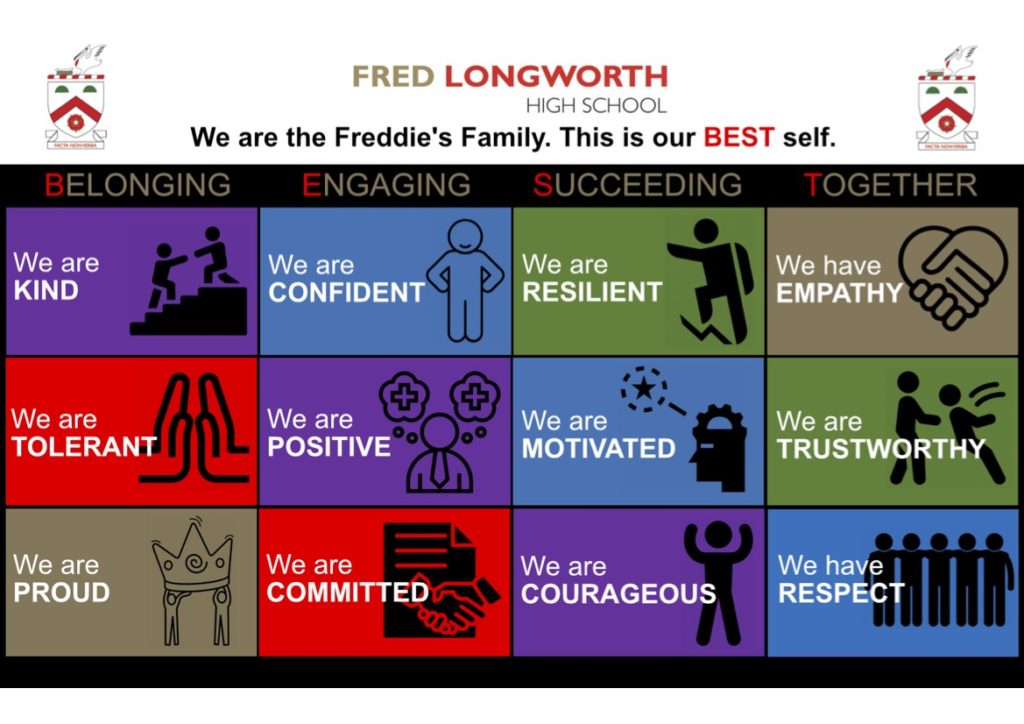Character - Resilience
‘The capacity to recover quickly from difficulties; toughness’.
Character - Resilience
‘The capacity to recover quickly from difficulties; toughness’.
Character - Resilience
‘The capacity to recover quickly from difficulties; toughness’.
Home > FLHS BEST Character Values > Character – Resilience
The next character trait that we will be focusing on is Resilience. This is particularly important as we move towards the latter end of this half term and students start to get tired. If students are resilient, they will be able to overcome adversity, keep going with high levels of motivation, and they are more likely to succeed. Being resilient takes time to develop and can only be achieved by pushing through challenging situations. Key information on ‘being resilient’ is included below.

Resilience
What resilience really means?
Being resilient means facing difficulties head-on instead of falling into despair or using unhealthy coping strategies. Resilience is often defined as the mental reservoir of strength that helps people handle stress and hardship.
Why is resilience so important?
Resilience can help protect you from various mental health conditions, such as depression and anxiety. Resilience can also help offset factors that increase the risk of mental health conditions.
What is a resilience example?
Managing strong emotions and impulses is another key factor in resilience. Let’s say someone gets angry. They could either take their anger out on someone nearby or learn to move on and stay focused. Focusing on events you can control is another great example of resilient behaviour.
Five Pillars of Resilience:
1. Self-awareness
Self-awareness is having conscious knowledge of your own personality, including strengths, weaknesses, emotions and motivations. It also allows us to understand how those around us perceive us.
2. Mindfulness
Mindfulness is our ability to be fully present, aware of where we are, what we are doing, and not overly reactive or overwhelmed by what is going on around us. Every time you bring awareness to what you are experiencing through your senses you are practicing mindfulness.
3. Self-care
Self-care looks different for everyone. It is the practice of taking action to maintain or improve our health. It is up to us to make an intentional effort to practice self-care.
4. Positive relationships
Positive relationships are exactly as it sounds. Healthy, positive relationships are those people in our lives who support and care for us and we care for them.
5. Purpose
Purpose helps us to shape our mindset and attitude towards others and towards our experiences. It allows us to recognise that we belong or serve something bigger than ourselves. We can find purpose in our faith, family, a political party or being a part of a community organisation.
Maintaining these skills takes practice; however, being able to use these five pillars of resilience can reframe our thinking so we see ourselves and the world around us in new ways. Taking this holistic approach to resilience will not only help us to manage the stress in our daily lives better but can positively impact our overall well-being in a significant way.
Does resilience mean strong?
Resilience is the ability to cope with and recover from setbacks. People who remain calm in the face of disaster have resilience. People with psychological resilience are able to use their skills and strengths to respond to life’s challenges.
What are examples of resilience in everyday life?
- Perceiving a setback as a learning opportunity, even if this is really challenging.
- Trying something multiple times without giving up.
- Committing to a challenge and seeing it through.
- Recognising stagnation as a natural and temporary part of a journey.
- The ability to tolerate difficulty and not let it deter you.

